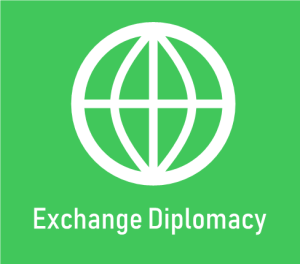This week in my media theory class, we looked at theoretical approaches to “new media” (now that it’s not so “new,” many references use the term “digital media”), so I’ve been thinking about how it all applies to exchange diplomacy.
My students this year are so young that they don’t really remember a world without the internet, which blows my mind and instantly makes me feel about 20 years older. There seems to be a real gap in our understanding of the impact of digital technology that spans across the generations–older people don’t fully understand it and younger people take it for granted, so ultimately, nobody’s really giving it due attention!
How has the advent of social media changed the exchange experience? There are so many affordances of social media that can contribute to the exchange experience–the reduction of time/space barriers to communication, ways in which it might help people manage culture shock symptoms, the idea of durable networked connections as a multiplier effect, etc. These all need to be explored, theorised, conceptualised, measured. Digital diplomacy research tends to focus on the ways in which governments/agencies use digital media tools, ignoring the impacts of digital media on cultural and educational exchanges.
In the early days of my PhD research, I considered looking at the exchange participant blogosphere, thinking it would provide some interesting insights into the exchange experience. After looking at a few blogs, I quickly let that idea go–most were neglected and short-lived, with enthusiastic “on arrival” and “settling in” posts followed by silence. Few were sustained, and even fewer included post-sojourn reflections on the experience. Exchange participants aren’t blogging–they’re too busy actually participating in the exchange to reflect on it like that. This impression seems to be backed up by the literature–a 2016 study by Tonkin and du Coudray found that the culture learning aims of exchange programme administrators weren’t met by asking students to blog their experiences, but were attained more naturally in social situations, like drinking with friends.
So if they’re not blogging, how else are they using these digital tools? How do Chinese students use social networking sites that they encounter when they study abroad, beyond the confines of the Great Firewall? Do exchange participants develop lasting networks of global contacts, and how do they use them? Do they actually prolong the culture mediation aspect of the exchange experience? I have a feeling that they could, but social media is such an individualised thing, it would be difficult to actually measure that! Something for a project proposal some day…

